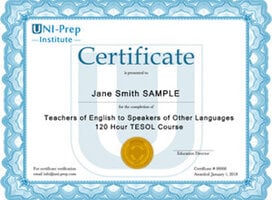Teach in Scotland
Gathering together, sharing good times, ‘having a blether’ and open armed welcomes give Scotland its reputation of being a cheery and gracious country. This is a land built on a history of pride and honor, traits still strong and heard today by way of tales passed down over the years and traditions still revered. The Scots have a way of pulling you in and making you feel like you truly belong here...and perhaps you truly do! If you’ve ever pondered the idea of teaching abroad, why not do it in a land where bru and haggis are plentiful, laughs are strong, and a quaint lifestyle can still be found.
Scotland dwells in the northern third of the island of Great Britain located within the United Kingdom. The Scottish education system has always remained distinct from the rest of the United Kingdom, with a strong emphasis on broad education. Scotland was one of the first countries to implement a system of general public education.
Schooling was initially made compulsory in Scotland in the late 1490’s and then in the mid 1500’s the Church of Scotland included a school in every parish due to its quest for spiritual reform. It wasn’t until the late 1800’s that education transitioned from a church matter to state regulated. The Education system has since continued to evolve over the years boasting various options for those prospective applicants wishing to partake in this field.
The teaching world can be a very aggressive and competitive field to get into in Scotland. The supply of jobs and the demand for positions by interested applicants does not exactly fit together which can prove to be a tiresome search for today’s job seeker.
On that note, there are certain areas of Scotland that have a much higher demand than others. So for those willing to stroll to the remote regions of Scotland for that dream teaching job, you will be rewarded with a typically higher pay than found in the than city schools.
Wherever you choose to roam during your Scottish teaching career, there will definitely be some lifestyle choices to make as well. The following information should better prepare you to make some of those choices:
Public Sector:
In the United Kingdom, Scotland included, public schools provide education free of charge to pupils. They are funded from the public sector and organized in three different ways:
- Schools funded by private donors and businessmen
- Schools under control of local authorities and are run by their policies; and
- Schools run on a more individual basis and controlled by their own governors.
Independent/Private Sector:
Independent or Private schools are not administered by local or national government and retain the right to select their student body. They are funded either by raising their own funds independently or by charging their students fees. There is an approximate 8% of all students enrolled in independent schools, which means the available teaching jobs within this sector is drastically lower. What makes this sector even more competitive is that it typically pays its educators more than a public institution.
Supply Teaching:
Many schools have reported problems finding cover because people are refusing to work for the lower rate – which is now less than the pay rate for classroom assistants. As a result it is easier to find work as a supply teacher, but it may well not be worth it financially; the demand is higher in the public schools rather than the independent schools.
Shortage Subjects:
Although this may not be an area for full-time work, being willing to take over a shortage subject(s) may open the door to many opportunities. Specialist subjects like Gaelic are in short supply, so if you happen to be qualified in Scotland’s national language you will find plenty of job offers. Modern languages and Latin have also been reported as short on able teachers. Home economics teachers are also in demand, as are teachers of technology and physics, followed by maths and English.
Support Roles and Classroom Assistants:
In Scotland, there are support roles, also known as classroom assistants, who are required to work in schools to help teachers with a range of tasks in the classroom. However, this position is not to be taken advantage of by being used as a stand-in teacher providing coverage for whole classes. A couple examples of enticing options under this category may include:
- Special Needs Assistant: Also known as special needs auxiliaries, SEN auxiliaries or support for learning assistants, work in schools helping children with a variety of special educational needs, including pupils with autism. They tend to work one-to-one with children
- Language Assistant: Native speakers of foreign languages are often sought out to work in Scottish schools to assist the language teachers. This is a fairly promising option as it is the Scottish Government’s pledge to ensure that pupils leave school with two foreign languages
When and Where to Look for Jobs:
It never hurts to submit your application year round, but be sure to boost your efforts during "teacher hiring season," which is approximately March through June. In order to secure the best educators, schools do their best to have new teachers hired by June for the upcoming school year.
Your luck in landing your dream job may ultimately depend on your preference of location. For example, your chances of finding work are significantly better if your ideal is to live in a rural area and you want to work in a state school. Essentially, the further you go from central Scotland the more likely you are to get a job.
There will be a copious amount of positions available in the more remote regions such as the Highlands and Argyll and Bute due to the fact that so many applicants wish to work in or near Scotland’s main cities. If you have your eye on an independent sector position, then you will have to stick to the larger cities such as Edinburgh and Glasgow as it is rare to find one of these institutions far away from the more populous central belt.
To assist you in making the best emplyment decisions, refer to entities such as the Scottish Council of Independent Schools, TesConnect, and the following English Teaching job resource, TEFL Scotland.
Work Visa
Those seekers of employment in Scotland will require a valid passport and should consult the UK Border Agency, which uses a five-tier visa regulation system. They should also visit this website to ensure that they have appropriate documents for the purpose of their visit (marriage, employment, studies, etc.). Applicants planning to work in the U.K. for any period of time are required to have a work permit; this includes voluntary work.
Qualifications:
To obtain a position as a full time teacher it is required that you successfully complete a relevant University course. For those seeking employment in the education field in Scotland, you will be happy to hear that there are also positions available that do not require any formal qualifications; these positions include support staff and classroom assistants. There is, of course, the option to take training sessions to better qualify yourself for these roles and put your resume at the top of the pile:
- Qualifications which are recognized throughout the UK include the NCFE Initial Training for Classroom, NVQ Teaching Assistants Level 2 and 3, and an HNC in Childcare and Education.
- There is a Higher National Certificate and a Higher National Diploma in ‘supporting special learning needs’, which are specifically aimed at those who wish to work with children and adults with special learning needs.
- Most local authorities also ask new support staff to undergo some form of induction training.
- Training in areas such as first aid and calming techniques.
Another wonderful site to peruse is one called Teaching in Scotland, which has been set up by the Scottish Government and houses useful information including further details on recognized qualifications for teaching here.
Salary & Cost of Living:
Salary depends largely on the assigned teaching role, sector, location, and qualifications. Support roles are not well paid, although recent pay cuts mean that classroom assistants can now earn more than supply teachers doing short-term placements.
Pay for support staff is set by each council so if you are flexible about where you’re based you stand a better chance of getting better pay. Teaching salaries and conditions of service in independent, fee- paying schools are competitive, as most independent schools pay teachers slightly above the national pay scales. The average monthly salary can range from 1400.00 – 1800.00 USD for a part time position; 2800.00 – 3200.00 USD for a full time position.
It is easy to keep your cost of living low with wise spending and wise choices. Scotland has an extensive transport network of rail, coach and ferries which can save you a pocket full of money as car and gas prices are quite high across the UK. If you are willing to share living quarters – and potentially make some new chaps – finding a roommate makes cost saving easy; average shared accommodation rentals hit around the monthly 600.00 USD mark per person.
The alternate option would be to opt for buying a property in Scotland where there is a wide variety to choose from and prices are generally lower than other locations across the UK.
Classroom & Work Culture:
- Women have the same rights as men in both the home and at the workplace.
- Women will be seen more frequently in the teaching field with a whopping women:men ratio of 2:1
(66.1% to 33.9 %) - Public sector students tend to dress in casual clothing; Private sector students are often required to wear a uniform
- The school usually begins in either September or October and ends in May or June. You will usually get between one and three weeks off for Spring Break in March or April. You’ll also get between four and six weeks off in December and January for the Christmas/New Year’s holidays.
- Most students tend not to have too many graded assignments. It’s common to have the grade for the
semester based upon one or two papers and a final exam. - At the University levels, grades may follow either A-F or use a scale from 1-20 or 1-22.
- Also at the University levels, many courses will have one day of lecture a week and one day of tutorial a week. Tutorials are held in a smaller group and are discussion-based. Sometimes tutorials are taught by postgraduate students instead of professors.
Safety and Cultural Awareness
Culture plays a large role in the uniqueness of every country. There is no exception when it comes to Scotland as this is a destination full of quirky surprises, laughable moments, and travellers challenges, not to mention the age- old traditions handed down since the earliest days of the clans in the 12th century. Have fun here, but remember to keep yourself safe and always act in a respectful manner. Here are a few general notes to keep in mind:
- You are subject to local laws.
- If invited to a Scottish household, it is appropriate to bring good wine, liquor, or chocolates.
- The more personal space, the better; a good rule of thumb is to keep about a 2-3 ft distance while
speaking with someone. - Touching is usually kept to a minimum and is generally not acceptable unless you know the person very well.
- It is very rude to jump the queue (cut in line).
- It is also rude to turn down a drink if someone offers you one. Also, remember to buy a round of drinks when out with a group (everyone takes turns buying drinks for everyone else in the group).
- You should never call a Scottish person English; some people get really offended if they think you don't know the difference.
- Tipping is generally expected in restaurants and cafes but not in pubs.
- Expect possible delays and disruptions in some areas during the weeks leading up to July 12, the day
Protestants celebrate their victory at the Battle of the Boyne. - Roads are excellent but are often narrow and congested, especially in urban areas. Traffic drives on the left and take note of all traffic signs which can still be seen in both English and Gaelic.
- Never leave food or drinks unattended or in the care of strangers. Be wary of accepting snacks, beverages, gum, or cigarettes from new acquaintances, as they may contain drugs that could put you at risk of sexual assault and robbery.
- Only hire a reputably marked taxi-cab as there have been instances of ‘fake’ cabs kidnapping and assaulting its riders.

















